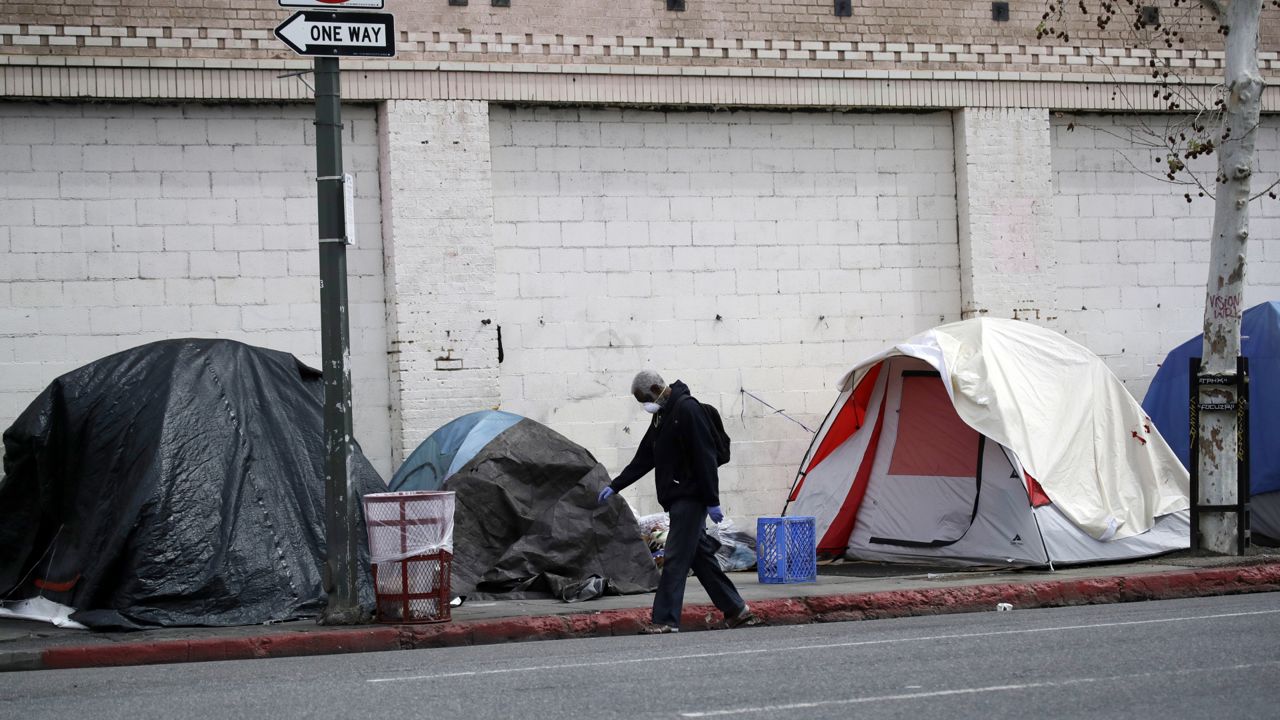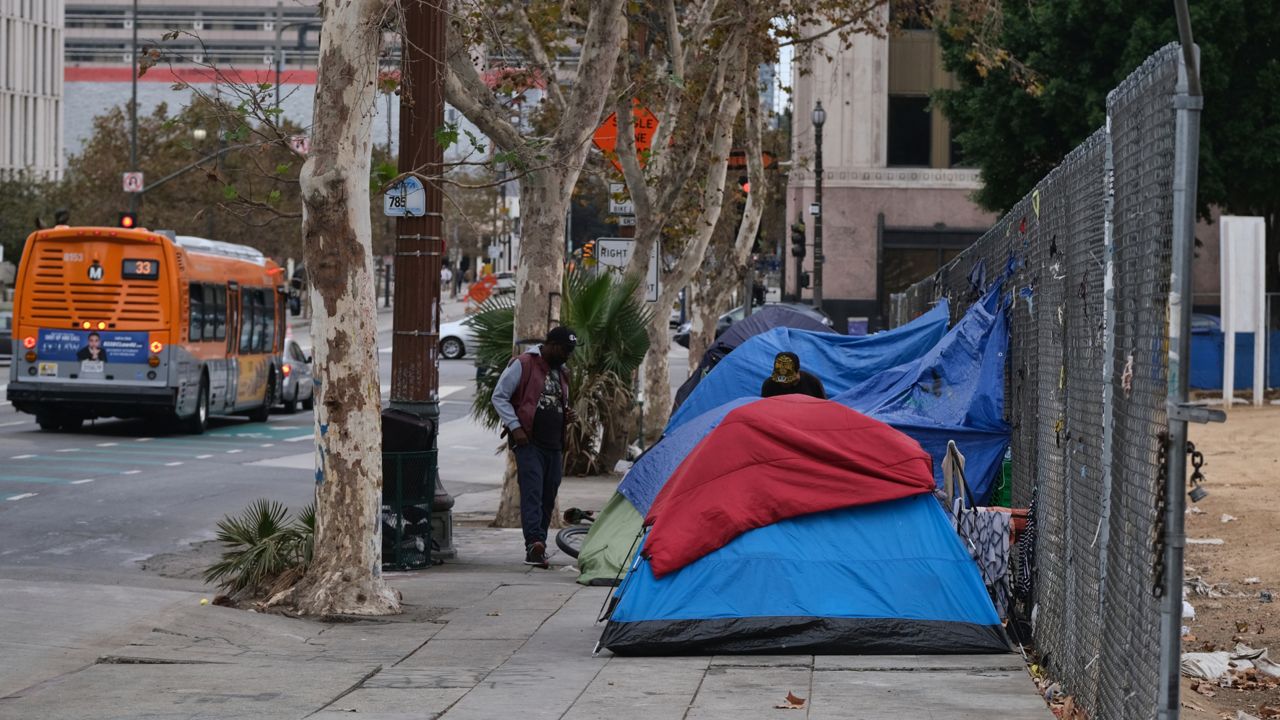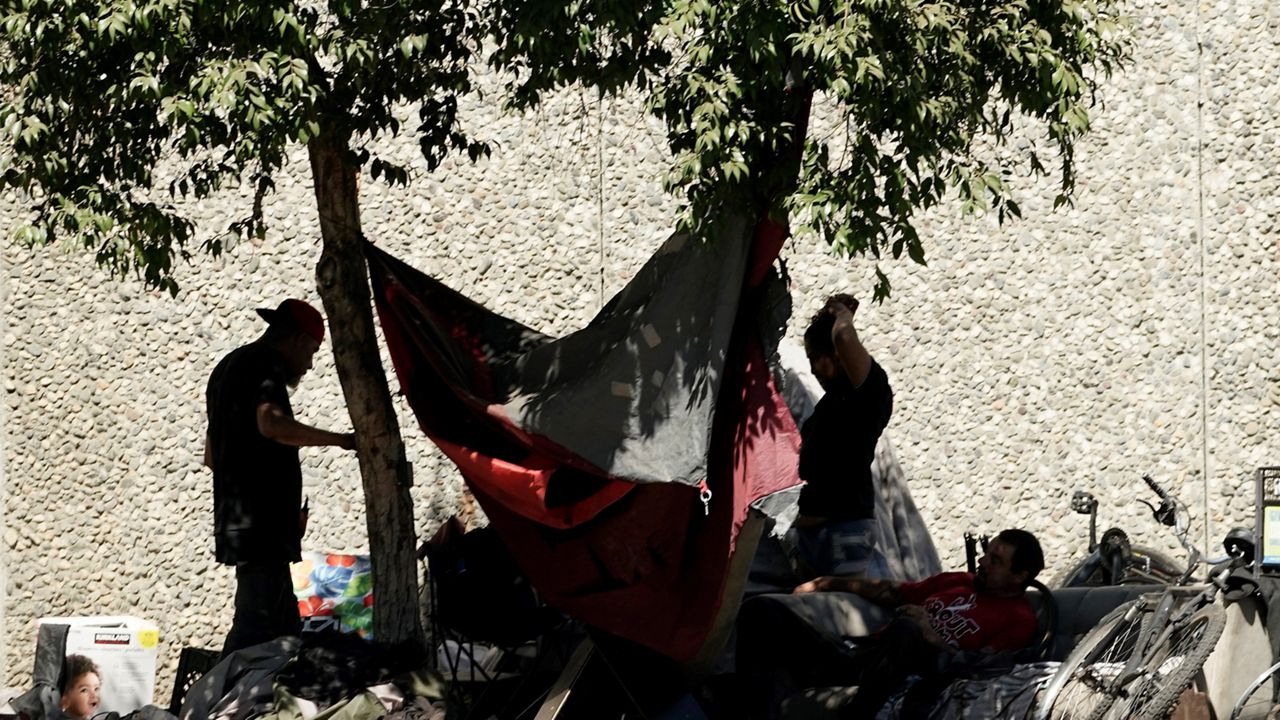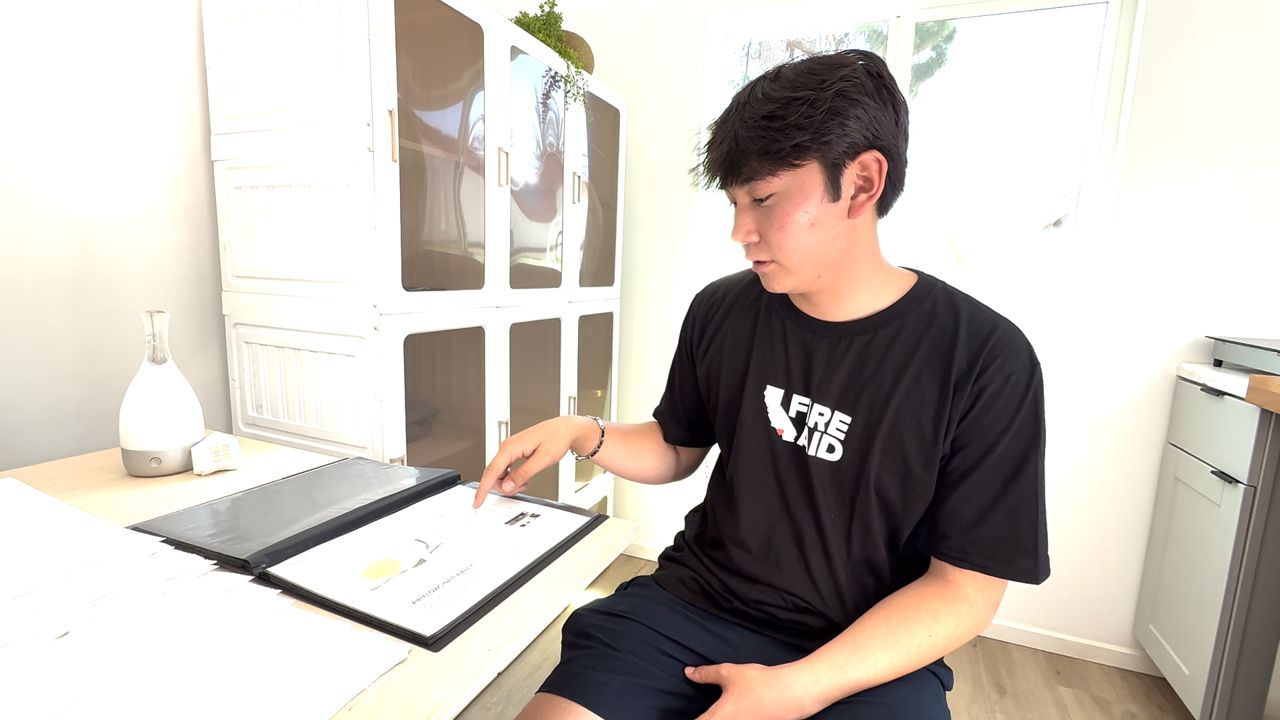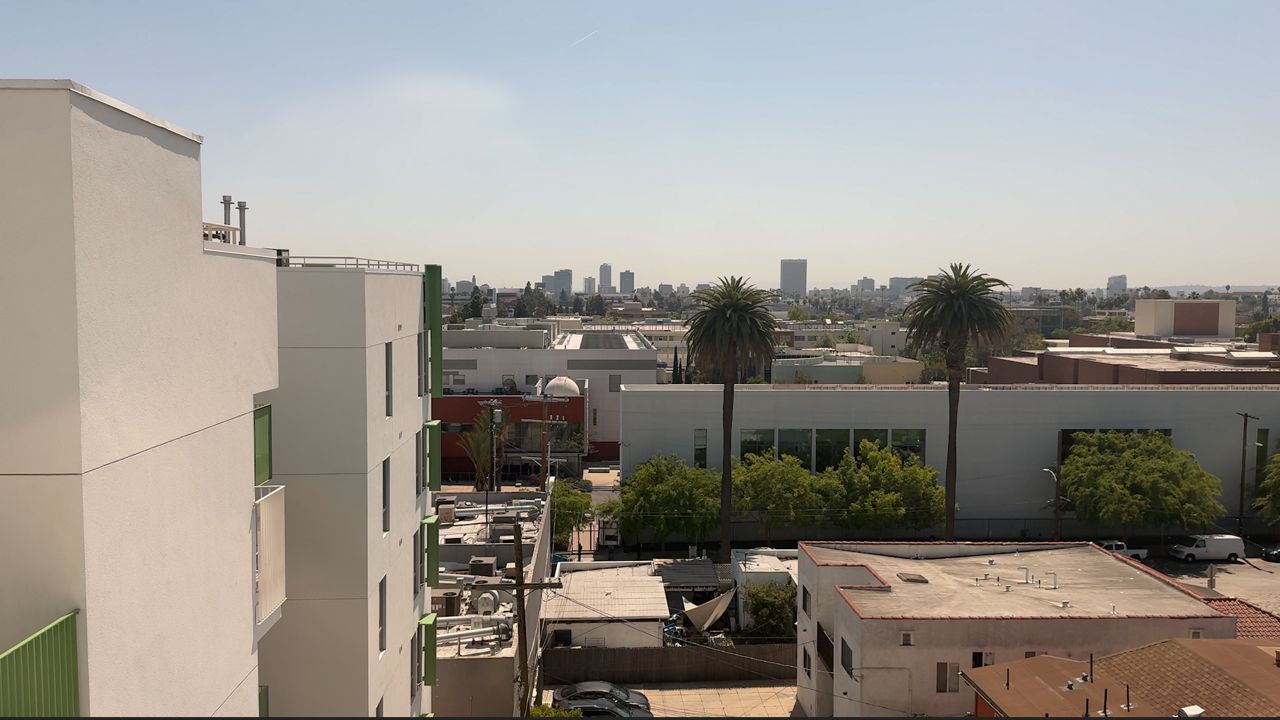LOS ANGELES (CNS) — Los Angeles officials told the City Council Wednesday that they're making good progress on three homelessness initiatives: A Bridge Home, Proposition HHH, and the COVID-19 Homelessness Roadmap.
Ann Sewill, general manager of the Housing and Community Investment Department, briefed the council on the status of Proposition HHH, which was approved by voters in November 2016 and was designed to increase supportive housing production from 300 units a year to 1,000 every year for 10 years.
Sewill said the city has 124 Proposition HHH-funded projects, with a total of 7,961 in the pipeline — 961 more than the initial goal of 7,000. Those include:
- seven facilities, with 489 units, completed and occupied or have people moving in
- 44 facilities, with 2,779 units, currently under construction
- 16 facilities expected to close construction financing by spring 2021
- 28 facilities expected to close construction financing by the end of 2021
- 29 facilities still assembling financing but expected to close by the end of 2022
Officials expect to have all 7,961 units completed by 2024.
The average Proposition HHH subsidy is $135,000 per unit, Sewill said, but there is additional funding from the county, state, and other sources.
"Each of these requires its own application, and the process of securing and complying with the requirements adds costs and time to the process. We estimate that the additional cost may be as much as $50,000-$80,000 per unit in extra time, carrying costs, legal costs and requirements," she said.
"But the net gain is about $210,000 a unit, so not only does this make the city's dollars go further and produce more homes here, but in truth, many of the requirements help make the developments more stable."
As an example, she said tax-credit programs require higher energy efficiency, which adds construction costs but reduces operating costs over the project's lifetime.
A Bridge Home was launched in 2017, soon after Proposition HHH.
"It became very clear that while these permanent units were being developed that we needed an interim solution, so A Bridge Home was launched," Assistant City Administrative Officer Yolanda Chavez told the council.
A Bridge Home's goal was to create one interim housing facility in each of the city's 15 council districts for a total of 1,500 beds.
The city has exceeded this goal, with 28 facilities completed and three in development, Chavez said. Once all are completed, there will be a total of 2,120 beds. The cost of each bed is $5,047, which is calculated through the number of people the bed is expected to serve over the term of the facility, according to Chavez.
"So if your facility is going to be there for five years, we calculated assuming a turnover of twice a year," Chavez said.
Meg Barclay, the city's homeless coordinator, briefed the council on a June 2020 agreement — called the COVID-19 Homelessness Roadmap — between the city and county to establish 6,700 "interventions" by Dec. 16, 2021. These include new units in permanent housing facilities, shelter beds, safe parking spots, and other types of assistance to homeless people.
The county committed to providing 50% of operating costs, or up to $293 million over five years, Barclay said. The city committed to pay any capital costs to establish the interventions, as well as 50% of operating costs up to $55 per bed per night and 100% of the costs over that amount.
The city's obligation is expected to be up to $300 million over five years, she said.
There are currently 8,252 interventions in progress, including 3,000 "rapid rehousing" or shared housing slots, 11 interim housing sites, 18 Project Homekey properties, and 12 safe parking sites.
Barclay said 2,580 of the interventions were completed and open as of Monday.
Los Angeles City Council President Nury Martinez expressed concern that only 499 rapid rehousing placements have been made out of the goal of 3,000.
"I do not want to have a situation where we're going into federal court and being reprimanded ... because we have not met the April 16 deadline," Martinez said. "If we're going to award (Los Angeles Homeless Services Authority) any additional money, we need to ensure that they're meeting their goals and not simply transferring money for the sake of transferring money. If they cannot meet these goals, I think we need to know that."






